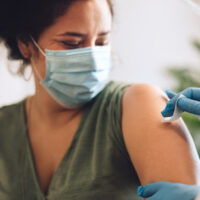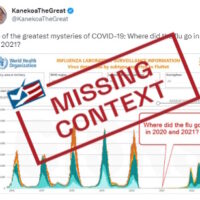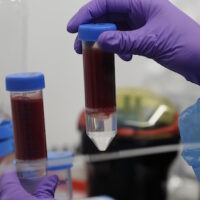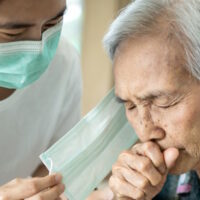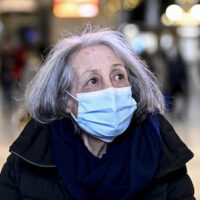COVID-19 vaccines substantially reduce the risk of dying from COVID-19, and serious side effects are very rare. Excess deaths among working-age adults in 2021 and 2022 were due to COVID-19 and other factors, not vaccination. Faulty logic underlies claims that vaccines caused mass disability and economic harm.
SciCheck
FactCheck.org’s SciCheck feature focuses exclusively on false and misleading scientific claims that are made by partisans to influence public policy. It was launched in January 2015 with a grant from the Stanton Foundation. The foundation was founded by the late Frank Stanton, president of CBS for 25 years, from 1946 to 1971.
Q&A on the Medication Abortion Court Rulings
More than half of abortions in the U.S. are medication abortions, done early in pregnancies. But federal court rulings have raised questions about the future availability of mifepristone, the first of the two-drug combination used in those abortions. Here we answer questions about the court rulings, mifepristone and what may happen next.
Fewer Cases of Flu Due to Pandemic Precautions, Contrary to Viral Claim
Public health organizations have explained that the reason there were far fewer cases of the flu in 2020 and 2021 was likely due to measures adopted to slow the spread of the virus that causes COVID-19, such as handwashing and social distancing. But a post on social media has spread the false claim that the dip in flu cases suggests that COVID-19 was a hoax.
Posts Exaggerate Lab Findings About COVID-19’s Impact on Immune System
Outside of long COVID or very severe cases, most research suggests COVID-19 doesn’t cause lasting damage to the immune system. A few studies have found evidence of some possible damage, but nothing as severe as an immunodeficiency. People on social media, however, are misinterpreting a recent study to incorrectly claim COVID-19 is HIV-like.
Taking Folic Acid, Not Other Folates, Is Recommended to Reduce Risk of Birth Defects
A folic acid supplement is recommended during pregnancy and prior to conception because it reduces the risk of neural tube defects in babies. Social media posts have claimed that people should avoid folic acid in favor of a different form of the vitamin, but folic acid is the only one that has been established to help prevent birth defects.
No Evidence Offshore Wind Development Killing Whales
Q: Is the development of offshore wind energy farms in the U.S. killing whales?
A: Whales have been dying at an unusual rate along the Atlantic Coast since 2016, often from ship strikes or entanglements with fishing gear. Federal agencies and experts say there is no link to offshore wind activities, although they continue to study the potential risks.
Q&A on RSV Maternal Vaccine and Antibody Candidates to Protect Infants
Nearly all children get sick from respiratory syncytial virus, or RSV, by the age of 2, and last year, there was a notable surge in RSV-associated hospitalizations. But the Food and Drug Administration is now considering approval of a vaccine and a monoclonal antibody aimed at protecting infants from this common virus.
Q&A on RSV Vaccine Candidates for Older Adults
No Evidence Scientists Received Grant for Changing Opinion on Pandemic Origins, Contrary to Claims
What the Cochrane Review Says About Masks For COVID-19 — and What It Doesn’t
People online are touting the results of a Cochrane review to incorrectly claim that it shows masks “don’t work” against the coronavirus. But the primary conclusion of the review is that it’s uncertain from randomized controlled trials whether mask interventions in the community help slow the spread of respiratory illnesses.
